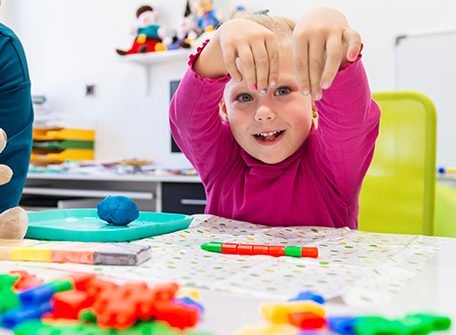Signs that my child may need an Occupational Therapist.
Occupational Therapy (OT) can be beneficial for children who may be experiencing challenges in various areas of development.
While every child is unique and develops at their own pace, there are certain signs that may indicate a need for occupational therapy.
Keep in mind that these signs don't necessarily guarantee a need for intervention, but they may suggest that further assessment by a healthcare professional, such as an occupational therapist, could be beneficial.
Some signs to look out for with your child:
Fine Motor Skills Delays:
Difficulty with activities requiring hand-eye coordination, such as using scissors, tying shoelaces, or buttoning clothes.
Poor handwriting or struggles with holding a pencil correctly.
Gross Motor Skills Delays:
Difficulty with basic motor skills like crawling, walking, or jumping.
Lack of coordination during physical activities or sports.
Sensory Processing Issues:
Overreacting or underreacting to sensory stimuli like touch, sound, taste, or smell.
Difficulty with transitions between activities or environments.
Poor Concentration and Attention:
Difficulty staying focused on tasks.
Easily distracted or restless behavior.
Social and Emotional Challenges:
Difficulty with social skills or making friends.
Challenges in regulating emotions or responding appropriately to different situations.
Self-Care Difficulties:
Struggles with basic self-care tasks like dressing, grooming, or feeding.
Difficulty organizing personal belongings.
Behavioral Issues:
Impulsivity, aggression, or difficulty following directions.
Challenges adapting to changes in routine.
Motor Planning Challenges:
Difficulty planning and executing sequences of movements, such as getting dressed or completing a series of tasks.
Poor Muscle Tone:
Low muscle tone or poor muscle strength, leading to challenges in posture and stability.
Academic Challenges:
Difficulty with tasks that involve coordination between the eyes and hands, such as copying from the board or completing worksheets.
It's important to note that children develop at different rates, and occasional challenges are normal.
However, if you notice persistent difficulties or a combination of several signs, it's advisable to consult with your child's paediatrician or a healthcare professional for further evaluation.
If needed, they may refer you to an Occupational Therapist who can assess your child's specific needs and provide targeted interventions.

